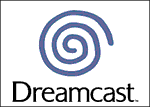Sega software teams to
develop for multiple platforms Posted: January 31st, 2001.
Posted: January 31st, 2001.
Sega to focus on content strengths to become the world’sleading publisher of interactive entertainment.
Sega software teams to develop for multiple platforms.
New Company Strategy Gives Sega a Range of Revenue Possibilities.
LONDON (January 31, 2001) Sega Europe today announced it would restructure the company to focus solely on videogamecontent — an area that has been Segas biggest strength for more than 40 years. Sega will unveil a two-pronged approach — becomea platform-neutral third party videogame publisher for game consoles, and provide the powerful Dreamcast chip-set technology to arange of devices including the PACE Micro Technologies set-top-box. By embracing technologies including Java, Sega will also betaking advantage of different publishing channels and will deliver Sega games to Palm handheld computers and Motorola cellularphones. With this new strategy, Sega will be significantly broadening its market of consumer purchasers, while dramaticallyexpanding its revenue possibilities.
“Sega has always been an industry innovator,” said Kazutoshi Miyake, Sega Europe Chief Operating Officer, “our new strategy willallow us to put our software content across a variety of platforms keeping Sega stay at forefront of gaming.”
The first Sega games to be available on other game consoles this year will include “Space Channel 5” for PlayStation2 and“Sonic the Hedgehog Advance” for Game Boy Advance®. Sega is also currently analyzing other videogame consoles and willmake further announcements regarding partnerships shortly. Sega plans to ship more than 100 games for Dreamcast worldwide, 30for other videogame consoles and a number of games for other Internet devices by March 2002.
To support Dreamcast consumers, many of the Dreamcast games shipping in Europe will include best-selling franchises such as“Sonic Adventure 2,” and “Crazy Taxi 2,” among others. Dreamcast gamers can also enjoy the current library of more than 200games including hits such as “Shenmue,” which sold more than 300,000 copies in just three months and Metropolis Street Racerdescribed as “One of the finest racers ever released on any format”.
“We have a lot of quality titles due out over the next year including stunning titles such as Phantasy Star Online, Head Hunter, andBlack & White. Tthere is plenty of good gaming to look forward to on Dreamcast,” continued Miyake.
Sega has more than 40 years of experience in developing videogame content and thousands of Sega developers worldwide creatingquality games. With the combination of a greatly expanded installed base provided by other videogame consoles and the worldsbest development talent with renowned game creators including Yu Suzuki (creator of the “Shenmue” and the “Virtua Fighter”series), Yuji Naka (creator of the “Sonic the Hedgehog” series, “Samba de Amigo” and “Phantasy Star Online” series) andTetsuya Mizuguchi (creator of “Space Channel 5” and the “Sega Rally” series), Sega is positioned well to surpass companiessuch as Nintendo and Sony in terms of worldwide software sales.
Sega will leverage its powerful Dreamcast technology and other technologies such as Java to further the objective of putting Segagames virtually everywhere. To that end, Sega has announced strategic partnerships with Palm, a pioneer in the field of mobile andwireless Internet solutions and a leader provider of handheld computers, and another with Pace, a UK based set-top-box company.Under the deal with Palm, Sega will provide both on and offline games for Palm and Palm wireless PDAs. Sega has licensed theDreamcast technology to Pace, which is creating a set-top-box that will play Dreamcast games. The set-top-box will have a harddrive and Internet connectivity. Additionally, Sega also announced late last year that the company would bring Java-based games toMotorola phones during 2001.
Sega has been a videogame software leader for more than 40 years. No other company has had more “firsts” in the $7 billionvideogame market than Sega. Sega created the first-ever arcade simulator game with “Hang On” in 1985. In 1990, Sega unveiled“R-360,” the first arcade game with the ability to rotate 360 degrees. In 1993, Yu Suzuki pioneered the 3D fighting game genre with“Virtua Fighter.” The year 2000 brought other industry firsts including “Seaman,” the first-ever voice recognition videogame in theU.S. and “ChuChu Rocket!” the first ever online console video game.
News page content input by Dominic Robinson, 2001.
Reviewer of movies, videogames and music since 1994. Aortic valve operation survivor from the same year. Running DVDfever.co.uk since 2000. Nobel Peace Prize winner 2021.
